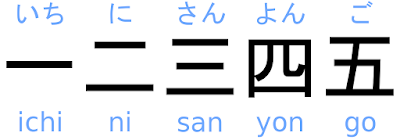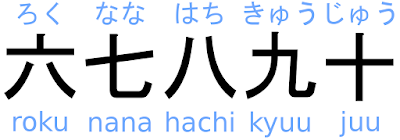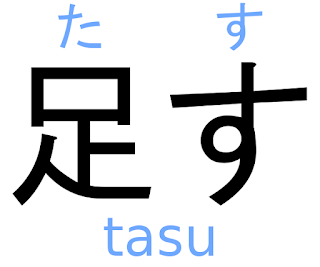For the 25th Japanese Word of the Day, I wanted to do something special for you! I know for a lot of people, numbers in Japanese are very basic and you've heard it all before so let's mix it in with how to say some math equations in Japanese.
Before we get started with math, you're going to need to know some basic numbers. So let's start with the numbers 1 to 10.
As you go on through this math section, you'll learn higher numbers. But today we're going to start with addition.
足す in a math statement is used in the exact same order as it is in English. The only change to the sentence is using は (pronounced "wa") instead of "equals". Here are some examples:
One plus one equals two / 一足す一は二
Two plus two equals four / 二足す二は四
Five plus seven equals twelve / 五足す七は十二
Fourteen plus ten equals twenty-four / 十四足す十は二十四
Normally, if you're writing out an equation in Japan, you would just write it the exact same way you normally would. 1 + 1 = 2. But it's important to also know how to say the equation. Also, you may have noticed twelve is written in Japanese as "ten two" and twenty-four is "two ten four". Try to think of what you're saying as "ten and two" for twelve and "two tens and four" for twenty-four. This pattern continues all the way up to 99 ( 九十九 ).
I really recommend looking up some sites where you can practice doing simple math, but just write out the equation and answer in Japanese. You can even practice speaking the equation out loud.
Here are some for you to practice turning into Japanese:
- 5 + 3
- 1 + 8
- 7 + 6
- 13 + 2
- 25 + 16
- 20 + 40
I hope you enjoyed learning math and numbers in Japanese. There will be more math in Japanese and numbers to come! Thank you for helping me get to the 25th Word of the Day post! I couldn't have done it without you!




No comments:
Post a Comment